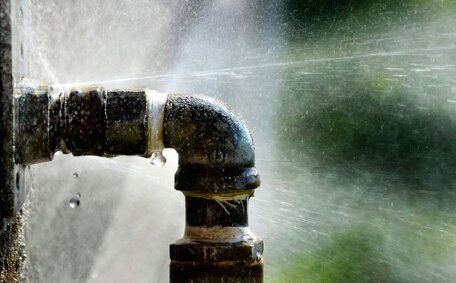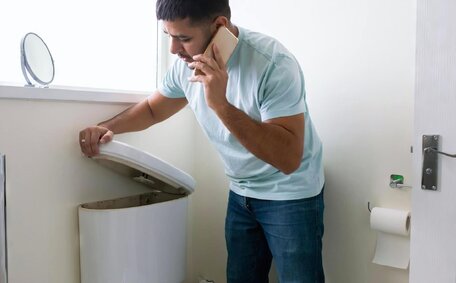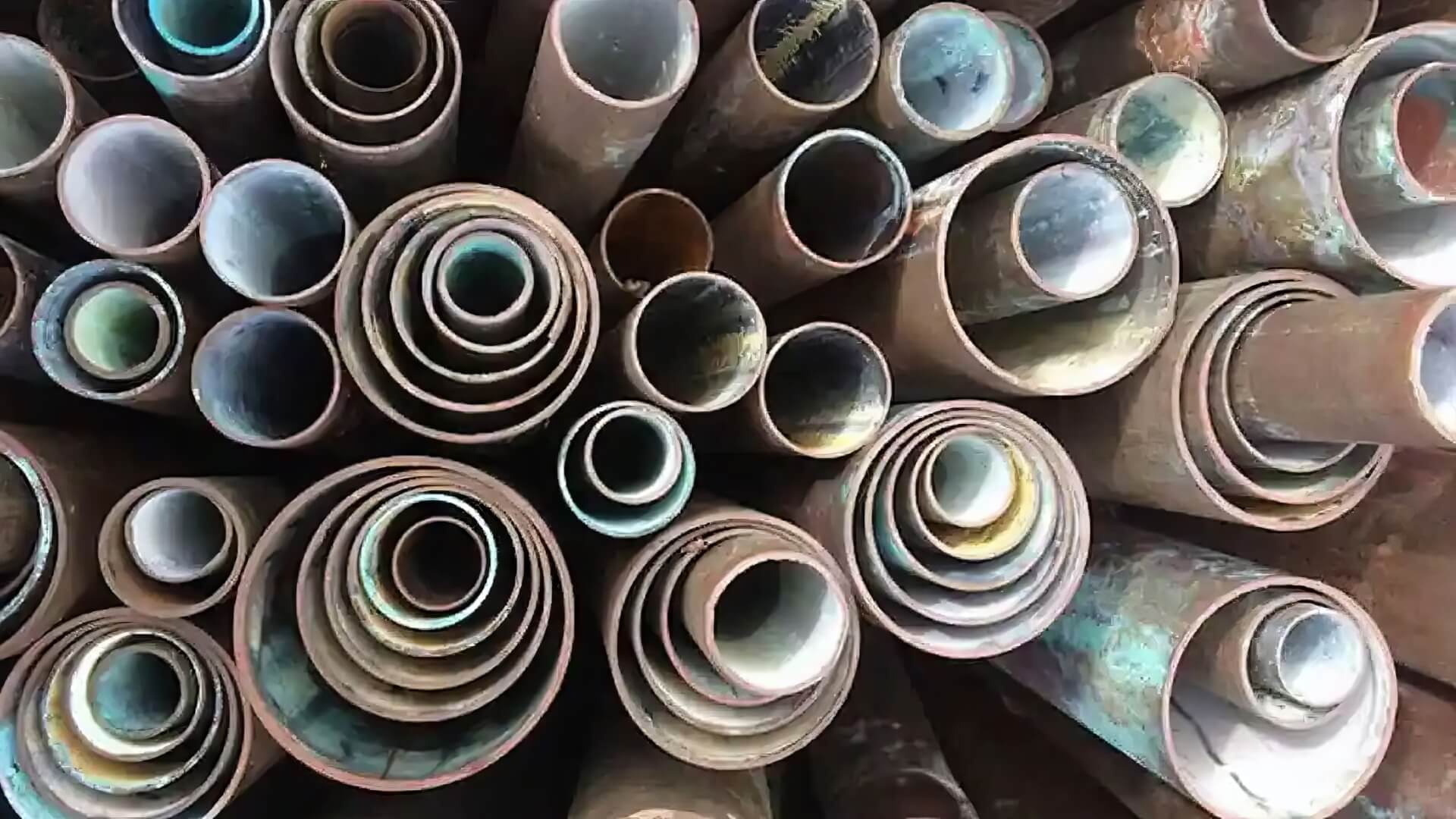Types of Hot Water Systems
There are several main types of hot water systems used in homes and businesses:
Gas Hot Water Systems
Gas hot water heaters operate using natural gas or LPG, available in storage tank or continuous flow designs.
- Hot water tank - Water is heated in an insulated tank and kept hot for later use.
- Continuous flow systems deliver immediate hot water, activating as water flows through.
- Hybrid - Combines a storage tank and continuous flow unit.
Electric Hot Water Systems
Electric hot water systems rely on electricity to heat water, with several types including:
- Storage tank - A popular option where water is heated by electric elements within an insulated tank.
- Continuous flow - Water is heated as it flows through heating elements.
- Heat pump - Extracts heat from the air to heat water.
- Solar electric - Solar panels generate electricity to power heating elements.
Solar Hot Water Systems
Solar hot water systems use energy from the sun to heat water. Types include:
- Evacuated tube collectors - Solar energy heats fluid in the tubes which transfers heat to water in a storage tank.
- Flat plate collectors - Solar energy directly heats water circulating through panels into a storage tank.
- Thermosiphon - Water circulates naturally through roof-mounted collectors into a tank without pumps.
Identifying the gas hot water heating system at your property is critical for the appropriate shutdown procedure.
Locating Your Hot Water System
Knowing where to turn off your water heater in your home is crucial for swiftly managing maintenance or emergencies. Here are some common places to check:
Utility Room or Closet
Storage tank and tankless gas hot water systems are often located in utility rooms or closets. Check areas near the water heater for valves your system might use, including those near the furnace or laundry machines.
Garage
Many homes have hot water heaters installed in the garage, either floor-standing or wall-mounted. Look for valves under sinks and around the garage’s perimeter.
Outside Wall
Exterior tankless units mean there’s no hot water delays, as they are mounted on an outer wall close to the gas and water lines entering your home.
Basement
If your home has a basement, check for the hot water heater along the basement walls or in a mechanical room.
Attic
In some homes, the water heater is located in the attic to maximise space; this requires specific steps to shut off water supply to the unit. Take extra care to avoid beams and ducts.
Knowing your hot water system’s location quickens the process of closing the water supply valve, swiftly halting water flow and ensuring easy access to the necessary stop valve.
Safety Precautions When Turning Off a Hot Water System
When turning off your hot water system, it’s crucial to take proper safety precautions. This prevents potential hazards and ensures the system can be safely restarted later.
- Locate the gas isolation valve on the inlet pipe and turn it to the 'off’ position to shut off the gas supply.
- Use the turn knob method on the gas valve, setting it to 'pilot’ or the off position stated in the manufacturer’s instructions.
- Safe shutdown requires proper operation of appliance control valves.
- Exercise extreme caution when turning off gas lines and valves, and seek help from a licenced professional if you’re unsure about the safe shutdown of gas.
If you need to turn off an electric water heater, follow these steps:
- Begin by switching off the power at the circuit breaker or disconnecting the fuse to turn off the electric water heater.
- Turn the thermostat dial to its lowest setting.
- Use caution when accessing electrical terminals and wiring.
Follow the manufacturer’s guidelines to shut off water during shutdown. If uncertain, seek a qualified plumber’s assistance.
Locate the gas isolation valve on the inlet pipe and turn it to the 'off’ position to shut off the gas supply.Step-by-Step Process for Turning Off a Gas Hot Water System
Here is a safe procedure to turn off a gas water heater:
- Locate the gas isolation valve on the inlet pipe leading to the water heater. It is usually found close to the unit.
- Turn the gas isolation valve clockwise to the off position, ensuring I shut off the gas flow completely.
- Find the gas control valve on the hot water system. Refer to the manufacturer’s instructions for the exact location.
- Turn the gas control knob to the 'pilot’ or off position as stated in the instructions. This off water your setting keeps the pilot light on.
- Ensure you also disconnect any electrical supply if your water heater is so equipped.
- Wait for about 5-10 minutes to confirm that the system is completely switched off.
- To turn off the water heater, meticulously adhere to the manufacturer’s instructions.
Turning the gas off at both the isolation valve and control valve is crucial to safely disabling a gas hot water system. Never try to relight a pilot light on your own; in case of uncertainty, promptly contact Mortdale Plumbing Services for professional assistance.
Step-by-Step Process for Turning Off an Electric Hot Water System
- Locate the switchboard and identify the circuit breaker or switch marked "Hot Water". This controls the power supply to the water heating unit.
- Turn off the hot water switch or flip the circuit breaker to the "Off" position. This cuts electrical power.
- Turn the thermostat on the water heating unit itself to also shut off to the lowest or "Off" setting.
- If your system has heating elements, ensure they have cooled before accessing the unit for maintenance.
- Switch off any booster switches that enhance heating capability.
- Check the owner’s manual for your system for any other shutdown procedures.
To deactivate an electric hot water system safely, disconnect power at both the switchboard and the heating unit. You might need to access electrical terminals, but never do so without first turning off the power. Should you face any doubts, call us to connect with a licenced electrician.
\ - Locate the switchboard and identify the circuit breaker or switch marked \"Hot Water\". This controls the power supply to the water heating unit.
\ - Turn off the hot water switch or flip the circuit breaker to the \"Off\" position. This cuts electrical power.
\ - Turn the thermostat on the water heating unit itself to the lowest or \"Off\" setting.
\ - If your system has heating elements, ensure they have cooled before accessing the unit for maintenance.
\ - Switch off any booster switches that enhance heating capability.
\ - Check the owner’s manual for your system for any other shutdown procedures.
\
Turning Off a Continuous Flow or Instantaneous Hot Water System
Continuous flow or instantaneous hot water systems differ from storage tank water heaters in how they are shut down, including the process where hot water can be turned off. Since water is heated directly and instantly, there is no pilot light to keep on or tank to drain. Instead, the key is to turn off the water supply to the unit.
Follow these steps to turn off a continuous flow hot water system:
- Locate the main water supply shutoff valve to turn water off for the home, typically situated near the water meter. Turn off main water supply by turning the valve clockwise to shut down the flow.
- Identify the specific shut off valve to shut off the hot water system, commonly found on the cold water inlet. Proceed to turn valve off to halt the water flow.
- Switch off any electrical supply to the unit if it is a powered ignition model.
- Turn on a hot water tap to flush out hot water and engage the relief valve, thus alleviating water pressure within the plumbing system.
Safely shutting off the continuous flow system involves closing the supply valves to stop water flow. Gradually turning off the water avoids pressure surge damages, and always refer to the manufacturer’s guide before system restart.
What to Do Before Going on Vacation
When preparing to leave for an extended vacation, properly shutting down your hot water system can prevent problems and save energy.
Benefits of Turning Off Your Hot Water System
- Prevents leaks - Closing the water supply eliminates the risk of leaks that could cause water damage while you’re away.
- Saves energy - Disconnecting the water supply stops standby heat losses, reducing energy costs.
- Prevents pipe freezing - Draining the system helps in stopping expansion and potential pipe bursts in cold conditions.
Preparing Your Hot Water System for Vacation
Use these tips to efficiently turn off your hot water system before departing for an extended trip:
- Turn off the power supply and the water supply of your off hot water system according to the instructions for your system type.
- If there’s a freezing risk, drain the tank and pipes, and open taps to aerate the pipes.
- For gas systems, enable "vacation" or "pilot" mode to maintain the pilot light.
- Check for leaks after turning back on when you return.
Taking the right steps before you leave ensures your hot water system remains operational when you get back.
When preparing to leave for an extended vacation, properly shutting down your hot water system can prevent problems and save energy.
Benefits of Turning Off Your Hot Ware away.Restarting Your Hot Water System
After an extended shutdown, restarting your hot water system properly ensures it is functioning safely. Follow these steps:
- Inspect the unit and pipes for any leaks, damage or issues. Contact a professional immediately if you find any problems.
- For gas systems, carefully follow the manufacturer’s instructions to relight the pilot light. Never attempt to relight a pilot yourself if unsure.
- For electric systems, turn power back on at the switchboard and heating unit. Set thermostat to desired temperature.
- Carefully turn the water supply back on, restoring pressure gradually while checking for and tightening any leaky connections.
- Run taps to release trapped air and confirm that water flow is restored throughout your property.
- Consult your owner’s manual if the system fails to ignite or heat after restarting. Call a professional for assistance if needed.
Taking appropriate precautions when reactivating your hot water system after shutdown promotes safe usage. Be alert for strange noises, odours, or issues. If in doubt, immediately seek help from a licenced plumber.
Restarting Your Hot Water System
After an extended shutdown, restarting your hot water system properly ensures it is functioning safely. Follow these steps:
Contact a professional immediately if you find any problems.For gas systems, carefully follow the manufactusystems, turn power back on at the switchboard and heating unit. Set thermostat to desired temperature.When to Call a Professional Plumber
While basic hot water system maintenance tasks can be handled by DIY-savvy homeowners, there are instances when it’s wise to call in a professional plumber for assistance.
Call a Plumber for:
- Unidentifiable leaks - A plumber has the necessary expertise to locate and repair leaks in your hot water system which you may not detect.
- Gas pipe concerns - Only qualified gas fitters should tackle gas odours or issues with gas lines.
- Pilot light issues - A plumber can securely relight a defiant pilot light that you’re unable to manage.
- Electrical issues - Contact a licenced electrician for any concerns with wiring, heating elements, or thermostats.
- Complex repairs - Any repairs requiring in-depth diagnostics or system knowledge are best left to professionals.
For detailed discussions and solutions, plumbing forums can provide further advice or alternatively, reach out to Mortdale Plumbing Services for support. For any plumbing concerns or to coordinate repairs on your hot water system in the Mortdale area, call us at 1300 349 338 or email jobs@mortdaleplumbingservices.com.au. Our skilled team stands ready to efficiently and safely restore your hot water system, operating extended hours to suit pm aest schedules.
While basic hot water system maintenance tasks can be handled by DIY-savvy homeowners, there are instances when it’s wise to call in a professional plumber for assistance.
Unidentifiable leaks - A plumber has the necessary expertise to locate and repair leaks in your hot water system which you may not detect.Gas pipe concerns - Only qualified gas fitters should tackle gas odours or 




